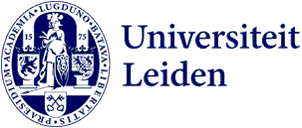
Pushing the boundaries of quantum theory
Mass, time, space, and complexity — physicists in Leiden are launching eight new research projects tackling some of the most fundamental themes in quantum mechanics. Their goal: to push the limits of current quantum theories.
Exploring and expanding the boundaries of knowledge is exactly what fundamental physicists at Leiden University do best. At LION (the Leiden Institute of Physics), eight new research projects are underway, made possible by a prestigious NWO Summit Grant.
Join our mailinglist
Updates, open calls and talks of the Summit Quantum Limits program will be advertised through this mailing list. Open for all interested in the program.
Among them are Tjerk Oosterkamp and Louk Rademaker, who are investigating the intersection of gravity and quantum mechanics — two realms of physics that, so far, have remained largely separate. They aim to better understand what happens when these two fundamental forces meet.

Meanwhile, Sense Jan van der Molen and Wolfgang Loeffler are teaming up to explore how a powerful impulse — a so-called quantum kick — can propel a massive particle into a quantum superposition. They are targeting objects made up of at least a million atoms and hope to achieve superpositions over distances ranging from nanometres to micrometres. So far, no one has succeeded in stabilising such a state — but they’re determined to be the first.
Check the Quantum Limits page for more information on all eight projects.
Quantum Limits
In 2024, the Quantum Limits consortium was awarded a €30 million NWO Summit Grant to explore the very edges of quantum science. The consortium brings together leading partners: QuTech, Quantum Nanoscience and Leiden Institute of Physics. Of the fifteen projects selected in this first round of funding, eight are led by researchers from Leiden.
All projects within the consortium revolve around four central research themes that aim to push the boundaries of what is physically and theoretically possible in the quantum realm.
List of research projects
- Semonti Bhattacharyya and Mazhar N. Ali (QN)
What is the quantum limit of friction? - Dirk Bouwmeester and Evert van Nieuwenburg
Quantum Information Processing in the Brain - Wolfgang Löffler and Sense Jan van der Molen
Quantum kicks – from decoherence to driving superpositions - Tjerk Oosterkamp and Louk Rademaker
Massive Quantum Chaos – does complexity speed up gravitational non-unitarity of a quantum system? - Koenraad Schalm and Kaveh Lahabi
Is there a fundamental quantum limit on diffusion? - Anna Dawid and Hao Wang
Understanding the trainability limits of classical neural-network representations of quantum states - Jordi Tura and Tim Coopmans (QuTech)
PACMAN Preparation And Certification of highly-entangled Multipartite quANtum states - Alfons Laarman and Sebastian Feld (QuTech)
xqLIMITS: Expanding the Limits of Quantum Complexity with Automated Reasoning

